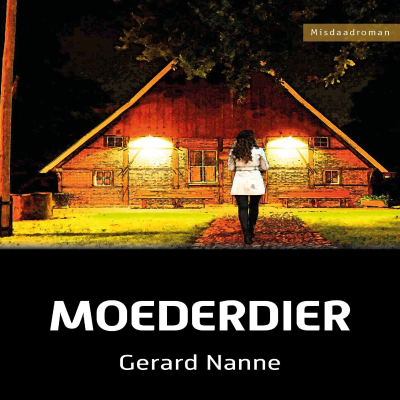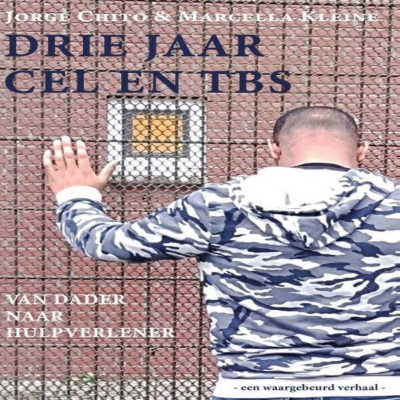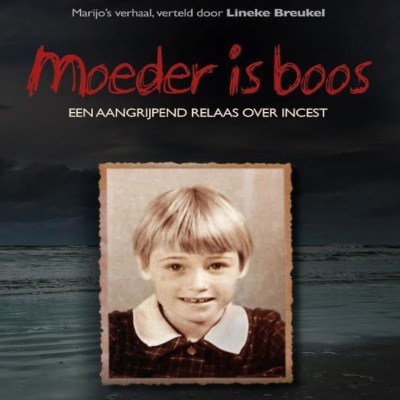
Theoria Audiobooks
Engels
Cultuur & Vrije Tijd
Tijdelijke aanbieding
2 maanden voor € 1
Daarna € 9,99 / maandElk moment opzegbaar.
- 20 uur luisterboeken / maand
- Podcasts die je alleen op Podimo hoort
- Gratis podcasts
Over Theoria Audiobooks
Professionally produced audiobooks distributed free of charge to promote patristic literacy and lifelong learning. https://theoriatv.substack.com theoriatv.substack.com
Alle afleveringen
20 afleveringenOn the Resurrection by Saint Athenagoras
Athenagoras of Athens, an early Christian apologist of the 2nd century, authored On the Resurrection of the Dead around 177 AD to address both pagan skepticism and philosophical misunderstandings surrounding the bodily resurrection. In a Greco-Roman world where Platonic and Stoic thought dominated the masses, many viewed the resurrection of the body as either impossible or undesirable. Athenagoras counters this by demonstrating that the resurrection aligns with the rational order of creation and God’s justice. Athenagoras insists that the resurrection reveals the integrity of human nature, created in the image of God, destined for eternal life. His arguments prefigure later patristic reflections on theosis, the transfiguration of the body and soul in Christ. Thus, On the Resurrection of the Dead holds an enduring place in Orthodox theology, providing a foundation for our understanding of eschatology and the ultimate restoration of all things in Christ. Theoria: Orthodox Christian Faith and Culture is a reader-supported publication. To receive new posts and support my work, consider becoming a free or paid subscriber. Get full access to Theoria: Orthodox Christian Faith and Culture at theoriatv.substack.com/subscribe [https://theoriatv.substack.com/subscribe?utm_medium=podcast&utm_campaign=CTA_4]
Against Heresies: Book 5 (Irenaeus of Lyons)
The fifth and final book of Against Heresies by Saint Irenaeus of Lyons begins by reaffirming the teachings of the Church, which have been preserved from the prophets through Christ and the apostles. He emphasizes the importance of the apostolic tradition and the integrity of the Church in maintaining the true faith. This foundation is crucial as he addresses the false teachings that have emerged, particularly those that distort the nature of God, Christ, and salvation. A significant portion of the book deals with the concept of resurrection. Irenaeus argues against those who deny the bodily resurrection, affirming that the same God who created mankind promises to restore creation to its intended glory. He interprets scriptural references to support the belief in a physical resurrection, aligning it with the teachings of Christ and the apostles. He insists that the resurrection is not merely a spiritual or metaphorical event but a physical reality that reflects the true nature of God's redemption plan. Furthermore, Irenaeus tackles the problem of evil and suffering. He explains that these are permitted by God for the ultimate good of humanity, serving as a means to reveal the power and justice of God. He argues that understanding and enduring suffering can lead to spiritual growth and deeper communion with God. This perspective offers a theodicy that justifies the presence of evil in a world created by a benevolent deity. Get full access to Theoria: Orthodox Christian Faith and Culture at theoriatv.substack.com/subscribe [https://theoriatv.substack.com/subscribe?utm_medium=podcast&utm_campaign=CTA_4]
To Autolycus (Theophilus of Antioch)
To Autolycus is an apologetic work by Theophilus of Antioch, written around 180 A.D. Although not much is known about the life of Theophilus, Eusebius and Jerome note that he was a defender against heresies. Sadly, To Autolycus is his only extant work. In 168 A.D. he became bishop of Antioch where he served until around 182 A.D. It bears noting here that this Theophilus of Antioch is not the same as the Theophilus greeted in the books of Luke and Acts. Composed in three books, To Autolycus addresses a pagan named – you guessed it – Autolycus. In it, Theophilus, a convert from paganism with a strong background in Greek philosophy, critiques Greek mythology and polytheism, and advocates for the coherence and superiority of Christian monotheism. Would you help us produce more audiobook like this by joining as a member here on substack or on our Patreon [https://www.patreon.com/theoriatv]? Theoria: Orthodox Christian Faith and Culture is a reader-supported publication. To receive new posts and support my work, consider becoming a free or paid subscriber. Get full access to Theoria: Orthodox Christian Faith and Culture at theoriatv.substack.com/subscribe [https://theoriatv.substack.com/subscribe?utm_medium=podcast&utm_campaign=CTA_4]
Tatian's Address to the Greeks
Tatian's "Address to the Greeks," was written around 160-170 A.D. Originally a pagan, Tatian converted to Christianity after encountering Justin Martyr's teachings in Rome. After Justin's martyrdom, Tatian returned to Syria and established an influential Christian school. In "Address to the Greeks," Tatian condemns Greek moral decay and philosophical inconsistencies, asserting that many Greek ideas were borrowed from older sources. He argues that Christian doctrine is both morally superior and more ancient than Greek philosophy, claiming that the wisdom of figures like Moses predated and surpassed that of Greek philosophers. Although Tatian’s work, particularly his Diatessaron which harmonizes the four gospels into a single narrative, is an admirable contribution to Christian literature, he promoted a kind of extreme asceticism unknown to the received tradition. Saint Irenaeus of Lyon, who was a contemporary of Tatian, called such individuals Encratites, noting that they “preached against marriage, thus setting aside the original creation of God, and indirectly blaming Him who made the male and female for the propagation of the human race.” He goes on to claim that this heresy came “springing from Saturninus and Marcion” (AH, 5.28.1). For his part, Eusebius of Ceasarea names Tatian as the author of the Encratite heresy (EH, 4.28–29). Would you help us produce more audiobook like this by joining as a member here on substack or on our Patreon [https://www.patreon.com/theoriatv]? Theoria: Orthodox Christian Faith and Culture is a reader-supported publication. To receive new posts and support my work, consider becoming a free or paid subscriber. Get full access to Theoria: Orthodox Christian Faith and Culture at theoriatv.substack.com/subscribe [https://theoriatv.substack.com/subscribe?utm_medium=podcast&utm_campaign=CTA_4]
Against Heresies: Book 4 (Irenaeus of Lyons)
Book 4 of Against Heresies – the longest of the five books – is a critical defense of early Christian orthodoxy, addressing and refuting Gnostic beliefs. A significant portion of the Book defends the Old Testament against Gnostic claims of its irrelevance. In light of the Gnostic claim of secret knowledge, Irenaeus hearkens to Apostolic Tradition, noting its centrality to the Christian faith. He argues that God’s revelation is intended for all believers, not just a select few with special insights. Elsewhere, he addresses the ethical implications of Christian faith, critiquing the Gnostic disregard for moral laws. He emphasizes that true knowledge of God should lead to righteous living, distinguishing orthodox Christianity from Gnostic practices. Finally, he concludes with the economy of salvation and the important dimension of faith. Would you help us produce more audiobook like this by joining as a member here on substack or on our Patreon [https://www.patreon.com/theoriatv]? Theoria: Orthodox Christian Faith and Culture is a reader-supported publication. To receive new posts and support my work, consider becoming a free or paid subscriber. Get full access to Theoria: Orthodox Christian Faith and Culture at theoriatv.substack.com/subscribe [https://theoriatv.substack.com/subscribe?utm_medium=podcast&utm_campaign=CTA_4]
Kies je abonnement
Tijdelijke aanbieding
Premium
20 uur aan luisterboeken
Podcasts die je alleen op Podimo hoort
Gratis podcasts
Elk moment opzegbaar
2 maanden voor € 1
Daarna € 9,99 / maand
Premium Plus
Onbeperkt luisterboeken
Podcasts die je alleen op Podimo hoort
Gratis podcasts
Elk moment opzegbaar
Probeer 30 dagen gratis
Daarna € 11,99 / maand
2 maanden voor € 1. Daarna € 9,99 / maand. Elk moment opzegbaar.































